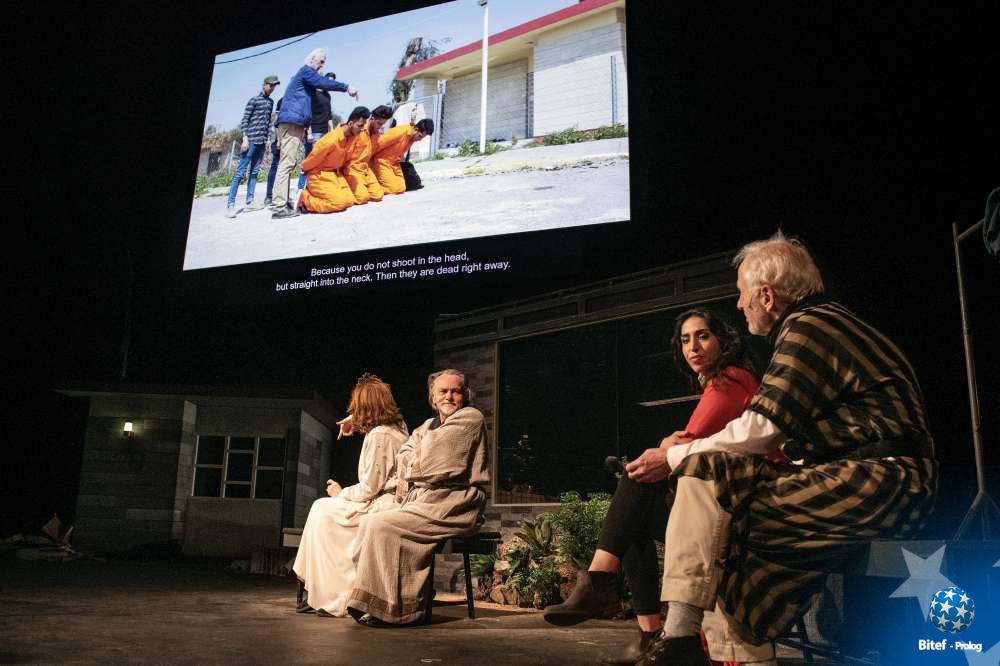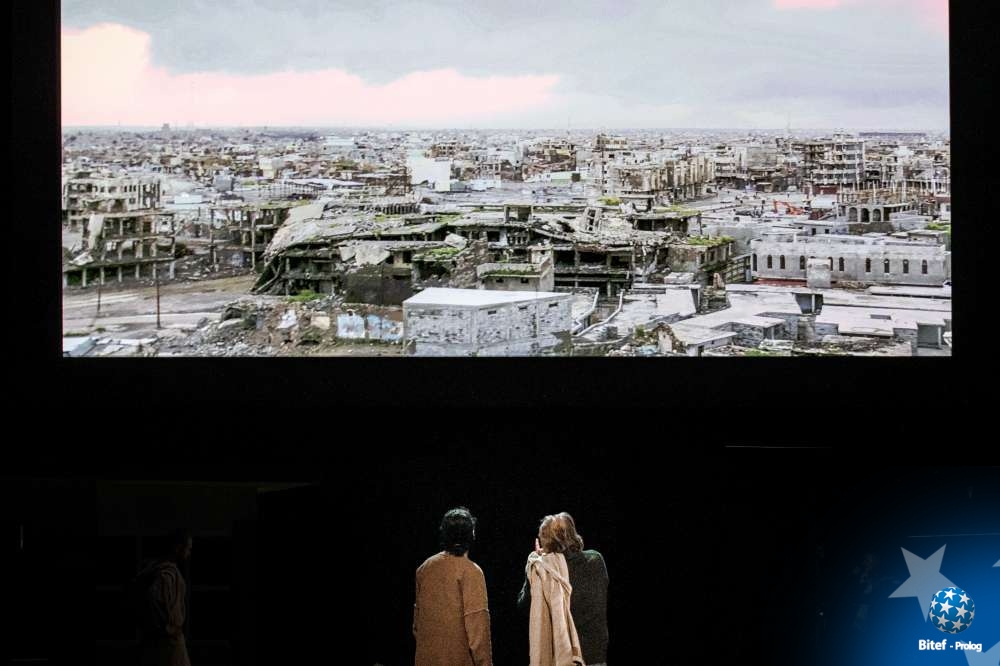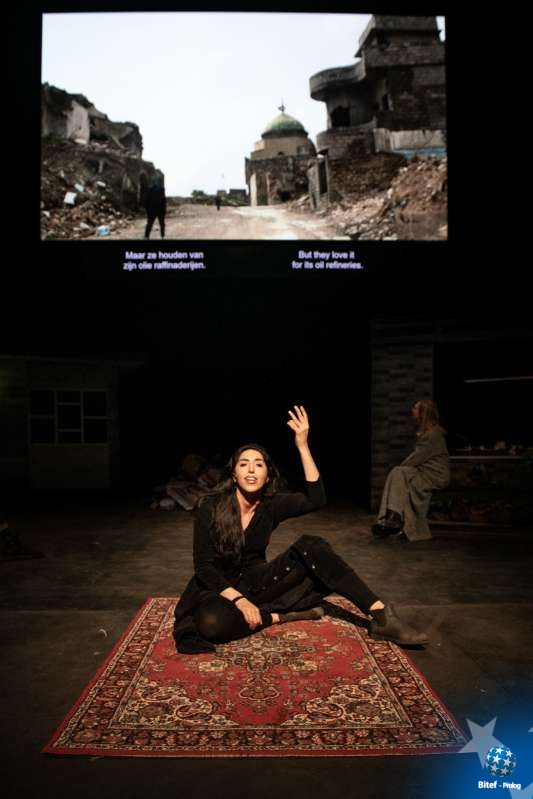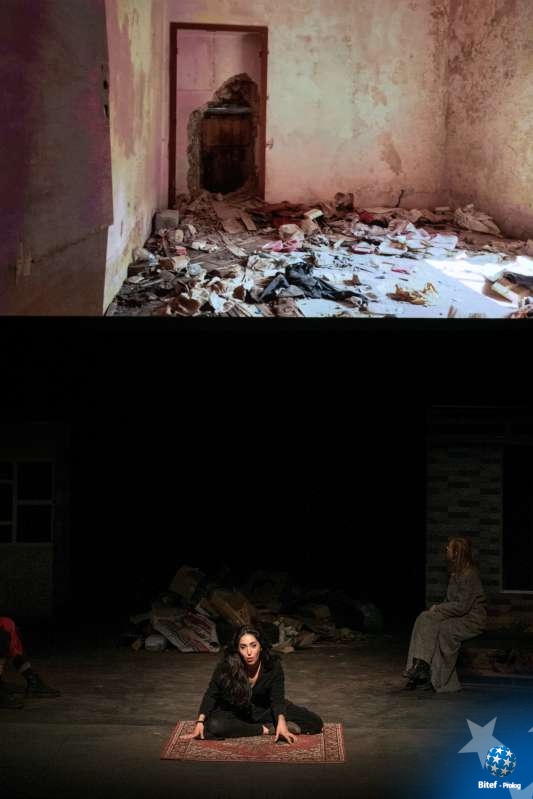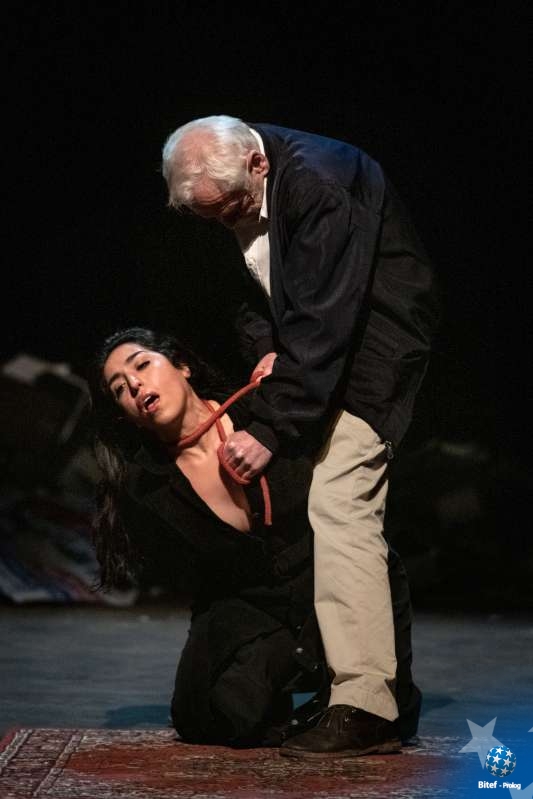About the production
The Oresteia is not only the one single tetralogy that has come down to us from classical antiquity and one of mankind’s greatest tragedies, but it also represents the myth of the foundation of civilisation, whereby the principle of the blood feud, the never-ending cycle of revenge, an eye for an eye, was replaced by the principles of justice, integration and reconciliation.
Milo Rau retains the ancient grandeur of the tragedy, but links it to present-day issues. What does it mean: being “civilized” in a globalized world? What is, on a general level, the relation of the so-called West and the regions in the Middle East that is fuelling our oil-based economy? What is the responsibility of artists in doing international projects? What can, what should be done in the wide field between colonialism and ignorance? What can be a revisited Oresteia for today?
Authors
MILO RAU (1977) has been called by the critics ‘the most influential’ (DIE ZEIT), ‘most awarded’ (Le Soir), ‘most interesting’ (De Standaard) or ‘most ambitious’ (The Guardian) artist of our time. Rau studied sociology, German and Romance languages and literature in Paris, Berlin and Zurich under Pierre Bourdieu and Tzvetan Todorov, among others. Since 2002, he has put out over 50 plays, films, books and actions. His productions have appeared at all major international festivals, including the Berlin Theatertreffen, the Festival d'Avignon, the Venice Biennale Teatro, the Wiener Festwochen and the Brussels Kunstenfestivaldesarts, and have toured more than 30 countries worldwide.
Rau has received many honours, most recently the Peter-Weiss-Prize 2017, the 3sat-Prize 2017, the 2017 Saarbrucken Poetry Lectureship for Drama and, in 2016, the prestigious World Theatre Day ITI Prize, as youngest artist ever after Frank Castorf and Pina Bausch. In 2017, Milo Rau was elected ‘Acting Director of the Year’ in the critics' survey conducted by the Deutsche Bühne. In 2018 he received the European Theatre Prize, and in 2019 he was awarded the first honorary doctorate by the Theatre Department of Lunds Universitet (Sweden). Rau is also a television critic, lecturer and a very productive writer. From the beginning of the season 2018/19 on, he is the artistic director of NTGent.
From the reviews
The war as a demise of civilization is often present in the theater, many pieces deal with the horrors and their consequences for the survivors. This is also the case in Orestes in Mosul. But the approach of director Milo Rau goes far beyond the usual. He literally moved into the war zone with his play.
Jürgen Boebers-Süßmann, WAZ
The project was by no means uncontroversial, but only partly because it was not safe. In the manifesto that Rau wrote for his Ghent theater, it reads that at least one production a year must be done in a crisis area. This requirement is met with Orestes in Mosul in the strictest possible way.
Martin Krumbholz, Nachtkritik
Touchingly, the international acting troupe shows pain, grief and the spiral of violence. Rau forces us to watch people being shot. Here you cannot look away - you can feel it all up close! Theater must also be a place for political truths, and here it is successfully achieved.
Hanne Höppner
Milo Rau understands the old play as a guide for the present and goes to destroyed Mosul, Iraq to look for traces of the effects of violence and the hope of justice. The audience in the sold-out theatre followed the excursion into the darkness and abysses of man with bated breath; rarely was it so quiet in the theater, rarely was the concentration so clearly visible.
Jürgen Boebers-Süßmann, WAZ
